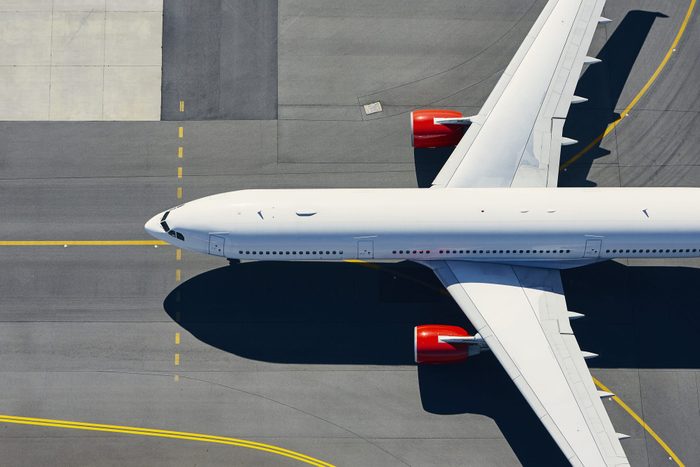
What do the noises on planes mean?
If you’ve traveled via airplane before, odds are you’ve heard a thump, ping, bang, or whir while in flight, during takeoff, or when landing. But what do the airplane chimes, beeps, and thuds mean? In most cases, they’re nothing to worry about. Oftentimes, certain noises can mean multiple things.
We tapped flight experts to explain everything you need to know about what these common airplane noises mean. And if you’ve wondered what airplane chimes mean, you’ve likely wondered why it’s so cold on airplanes, why airplane windows are round, and maybe even how high airplanes fly. We’ve got the scoop on all of the airplane facts you’d ever want to know, including the things flight attendants would never do.
What do the pings on a plane mean?
You might hear one, two, or ten on your flight—but what do airplane chimes mean? It turns out the pings you hear overhead in flight are actually somewhat important. They generally let you know when you should stay seated and when you can move around the cabin, which it’s why it’s good to know the best time to get up and use the plane bathroom.
But depending on what airline you’re flying, they likely also mean something else. According to Scott Keyes, founder and CEO of Scott’s Cheap Flights, airline pilots and crews often use sounds to communicate with one another. “Each airline has its own internal language for what specific chimes mean, and they can vary by length, pitch, and repetition,” Keyes told Reader’s Digest. “Think of it as a 30,000-foot morse code.”
The codes may indicate a need for seatbelts, passengers requiring assistance, upcoming turbulence, that the plane has reached a certain altitude, or almost anything else. Each code language is determined by its airline, and no two airlines are the same, so it’s nearly impossible to generalize.
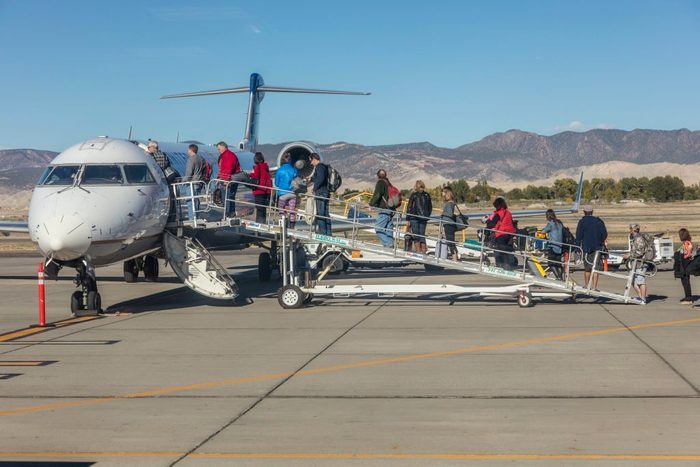
Banging while boarding
It’s common to hear banging coming from below when boarding a plane or waiting in your seat at the gate before takeoff. But don’t worry! This is most likely just the cargo, or the luggage, being loaded onto the plane beneath the cabin. For more interesting airplane facts, check out the hidden airplane features you had no idea existed.
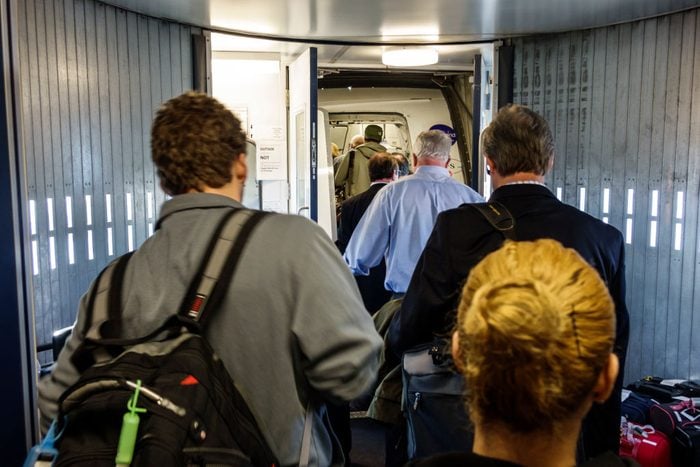
A puff of air while boarding
Before takeoff, one of the first sounds you’ll hear when flying is a puff or whoosh of air coming from inside the aircraft. This sound occurs when the plane’s ventilation system switches from an outside system to one inside the aircraft. The lights inside may also flicker when this happens. Keep learning about airplanes by reading up on what actually happens when you flush an airplane toilet.
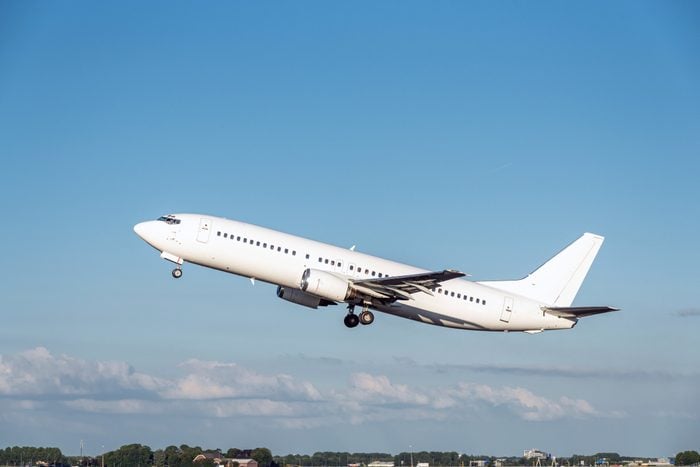
Two thumps and a high-pitched whir right after takeoff
When the plane lifts off the ground, the pilot pulls the wheels into the plane’s body and closes the flaps behind them, one at a time (thump, thump). That disconcerting whir comes from the pilot retracting the wing flaps that were needed to get the plane off the ground. Both of those actions are part of the process of “cleaning up the plane” to make it streamlined for flight. Next, find out why “airplane” is sometimes spelled “aeroplane.”
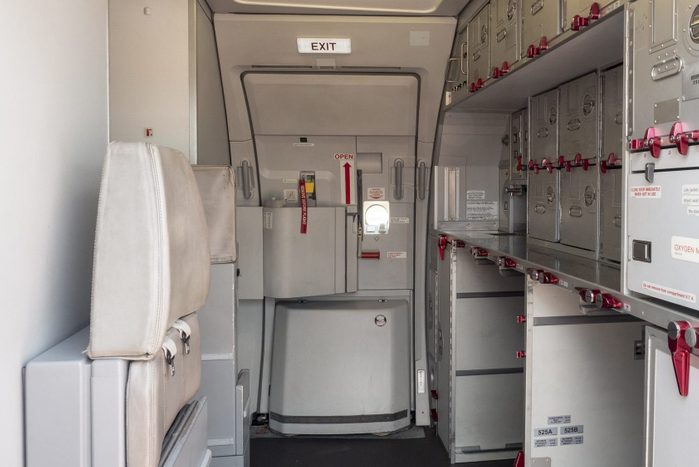
“Doors to arrival” and “cross check”
When an airplane’s doors are closed, an escape slide is automatically enabled for safety reasons. That’s why you’ll hear the phrase “doors to arrival” as you approach the gate. It reminds flight attendants to disarm the slide. “Cross check” is a directive for the crew to double-check one another’s doors for the slide. On the topic of airplane safety, here’s why some airplanes have rear-facing seats.
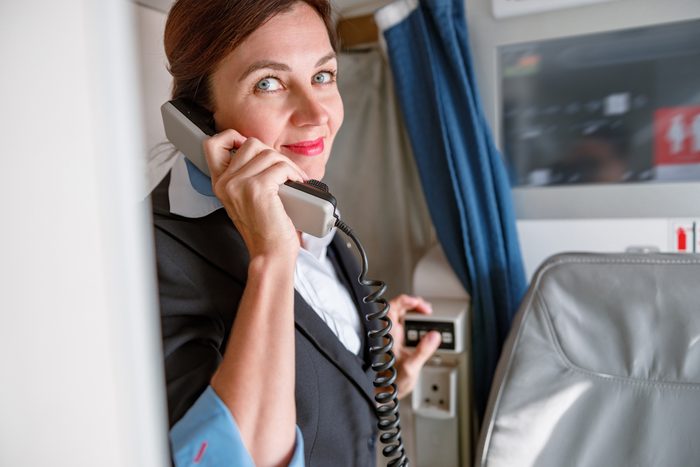
“All call”
You might hear this overhead or from one of the flight attendants. This announcement is a request for a sort of conference call for the crew. Each flight attendant calls in to report that he or she has completed the assigned safety checks. You should never interfere with the crew’s safety routines, and you also shouldn’t do these things while on an airplane.
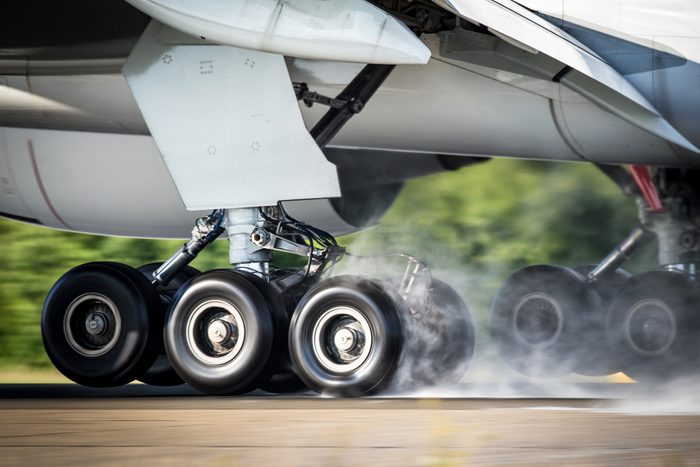
A rumble during landing
As the plane begins its descent, the engine noise will reduce since it is no longer accelerating. In order to slow the plane down so that it can land safely, the flight spoilers—the long boards on the wing that lift up to increase drag—will be activated. When they are activated, passengers in the cabin will hear a rumble and feel vibrations. If you need to connect to the Internet while in-air, this is how Wi-Fi on planes works.
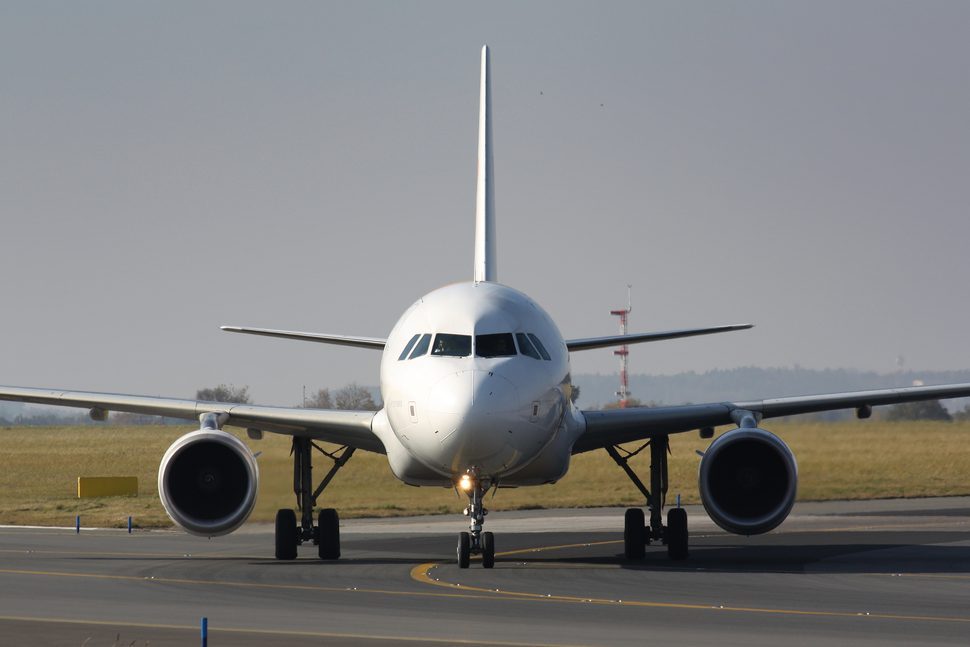
Revving engines during touchdown
Once the plane has touched down on land, it sounds like the engines are revving for takeoff. This is just the captain reversing the engine thrusts to help slow down the aircraft. When this happens, you’ll hear the loud noise of the engines and feel pushed forward in your seat because of rapid deceleration. Want more travel info? Here’s what airplane mode on your phone actually does.